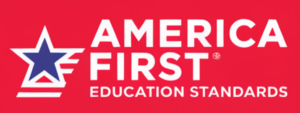DRAFT: State Lobbying & Advocacy Plan for [Final Organization Name]
Section 1: Objective & Purpose This lobbying and advocacy plan outlines the strategy for securing state-level recognition of [Final Organization Name] as an official accrediting body for private K-12 schools, homeschool cooperatives, and charter institutions. The goal is to influence state legislation and policy to support alternative accreditation pathways and expand school choice opportunities.
Section 2: Target States & Legislative Priorities The following states have been identified for legislative lobbying due to their strong school choice policies and conservative leadership:
- Florida – Advocate for explicit recognition of alternative accreditors in education statutes.
- Texas – Support state-led initiatives expanding school choice and voucher programs.
- Tennessee – Lobby for legislative endorsement of alternative accreditation models.
- Arizona – Work with lawmakers to integrate alternative accreditation into state education policy.
- South Dakota – Introduce legislation to recognize private accreditation for voucher eligibility.
- Arkansas – Align with existing school choice advocates to formalize accreditation recognition.
Legislative priorities include:
- Recognition of [Final Organization Name] in state education codes as a valid accreditor.
- Ensuring school choice funding applies to accredited schools under alternative accreditation models.
- Protecting parental rights in education and the autonomy of private and homeschool institutions.
Section 3: Legislative Strategy & Action Plan
- Bill Drafting & Sponsorship
- Draft model legislation that explicitly recognizes [Final Organization Name] as a legitimate accreditor.
- Identify and secure sponsorship from conservative state lawmakers.
- Legislative Hearings & Testimony
- Prepare expert testimony from education policy leaders and accredited school representatives.
- Present compelling arguments on the benefits of school choice and alternative accreditation.
- Grassroots & Parent Advocacy
- Mobilize parent groups and school administrators to contact state legislators.
- Organize petitions and letter-writing campaigns to demonstrate public support.
- Coalition Building
- Partner with conservative education think tanks, advocacy organizations, and legal groups.
- Align with existing school choice coalitions to strengthen influence.
- Media & Public Relations
- Launch a strategic media campaign to highlight accreditation benefits.
- Engage conservative news outlets, influencers, and policy podcasts to drive awareness.
Section 4: Legal & Policy Safeguards
- State Education Agency Compliance
- Work with state education departments to meet formal requirements for accreditor recognition.
- Ensure policies comply with existing state and federal education laws.
- Legal Defense Against Opposition
- Establish a legal defense fund to counter challenges from teachers’ unions and left-wing organizations.
- Preemptively file legal opinions supporting alternative accreditation under school choice laws.
- Long-Term Policy Integration
- Advocate for permanent statutory recognition to prevent policy reversals.
- Work towards embedding alternative accreditation into long-term state education policy frameworks.
Section 5: Timeline & Milestones Phase 1 (0-6 months):
- Draft model legislation and secure initial legislative sponsors.
- Begin grassroots advocacy and coalition-building efforts.
- File initial applications with state education agencies.
Phase 2 (6-12 months):
- Conduct legislative hearings and committee presentations.
- Expand media and public relations campaign.
- Secure initial state recognitions.
Phase 3 (12+ months):
- Push for permanent statutory recognition in target states.
- Expand lobbying efforts to additional conservative states.
- Defend against any legal or political opposition.
Section 6: Next Steps & Execution Plan
- Finalize model legislation and secure initial sponsors.
- Launch coordinated advocacy campaign targeting parents and school leaders.
- Engage with legal counsel to prepare compliance filings and legal defenses.
- Deploy media strategy to generate awareness and legislative support.
- Monitor legislative sessions and adjust tactics as needed to ensure success.
End of State Lobbying & Advocacy Plan
